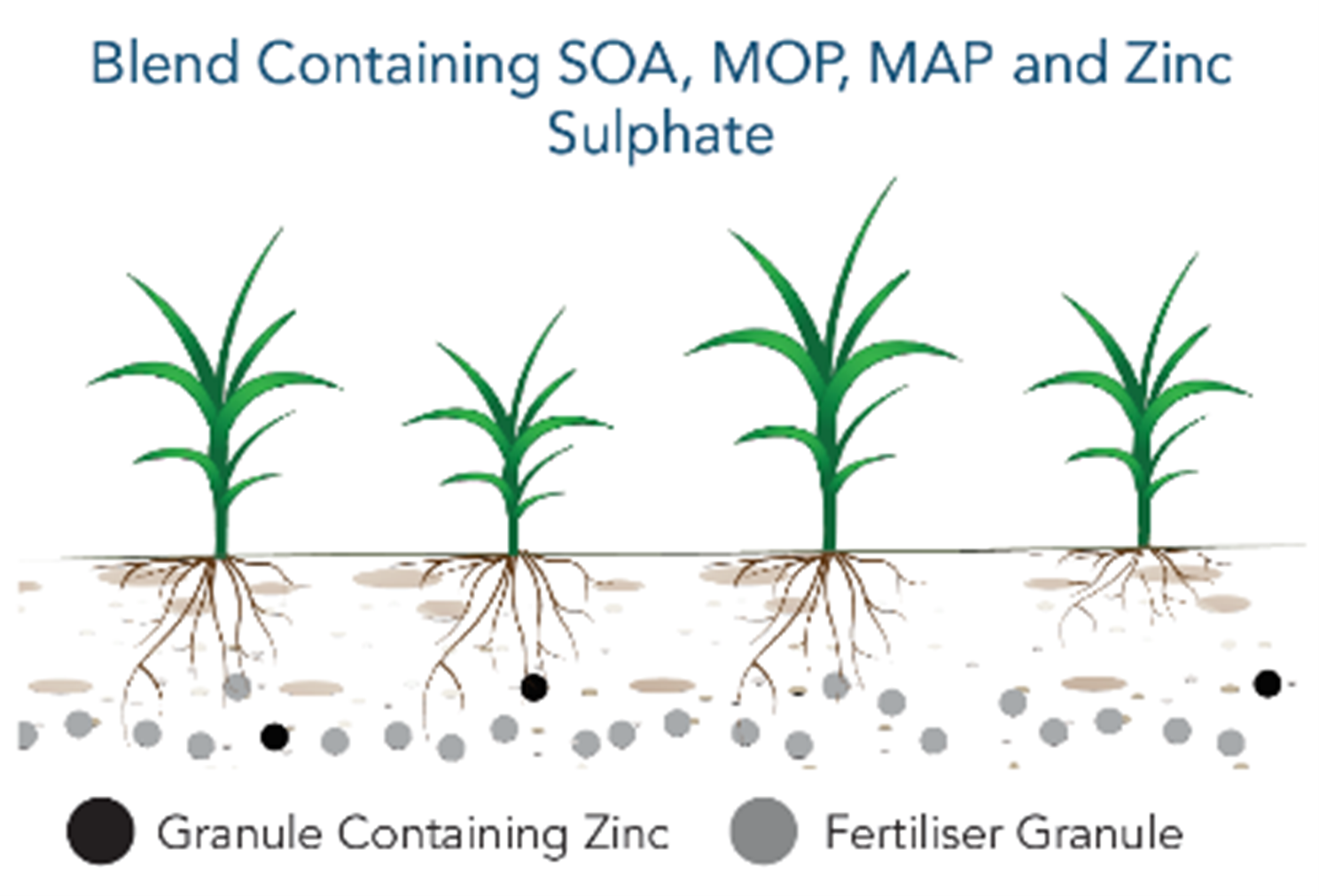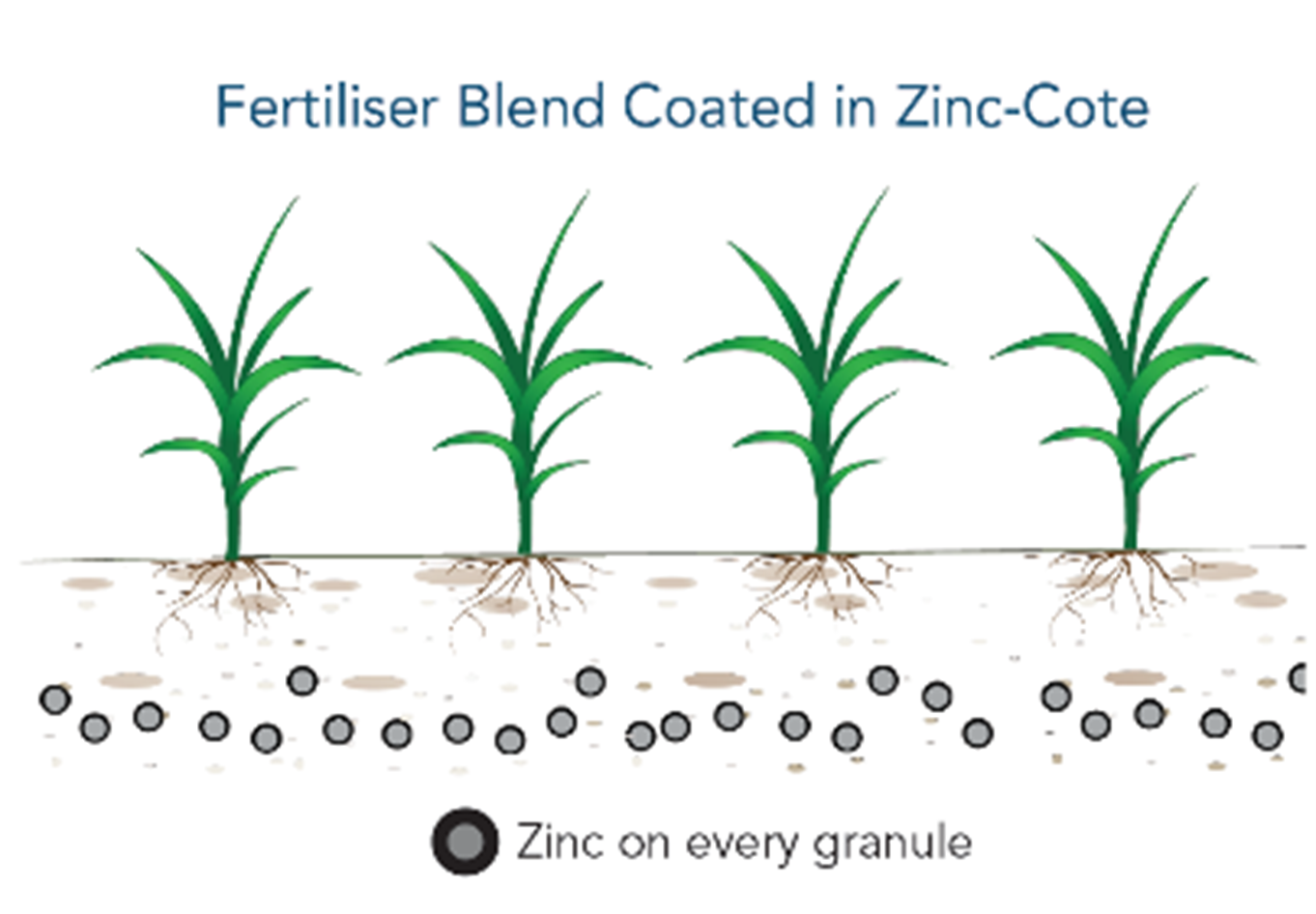Unlocking the Importance of Zinc in Sugarcane
Agronomy Services Manager Zhensong Zhu says, zinc is a vital micronutrient in sugarcane production and should not be overlooked in a nutrient management plan.
Why is Zinc Important in Sugarcane Production?
Zinc is involved in enzyme activation, carbohydrate metabolism, auxin synthesis, protein synthesis and stress tolerance.** Proper zinc management is critical in boosting your crop growth & quality this sugarcane season.
According to the Sugarcane Nutrition Manual, zinc applications to deficient soils can increase root mass, cane yield and commercial cane sugar (CCS).* Therefore, ensuring that your sugarcane crop has access to adequate zinc nutrition is important for optimising your crop potential this season.
Soil testing and plant tissue analysis can be used to determine the zinc status in the soil and plants. Zinc is more plant available in acidic soils and as the soil becomes more alkaline its plant availability will decline.
Why is Zinc Distribution Important?
Zinc is immobile in the soil, therefore it is critical to ensure zinc is placed at the seed during sowing to boost uptake by crop roots. Poor distribution, could cause uneven nutrient uptake across your crop resulting in a variation in quality. Zinc-Coated fertilisers and compound fertilisers can provide far better distribution than dry-blended zinc which can have poor spacial availability as granules are too far apart.** Therefore, using products such as Zinc-Cote or ZINCSTAR can result in a more even distribution and uptake of zinc.


*Calcino, D. (2018) Australian Sugarcane Nutrition Manual . Available at: https://sugarresearch.com.au/wp-content/uploads/2017/02/GCM2307-Sugar-Research-Australia-Publication-Layout-F-Web.pdf (Accessed: 25 May 2023).
**Price, G.H. (2006) Australian Soil Fertility Manual. Melbourne, VIC: CSIRO Publishing.
